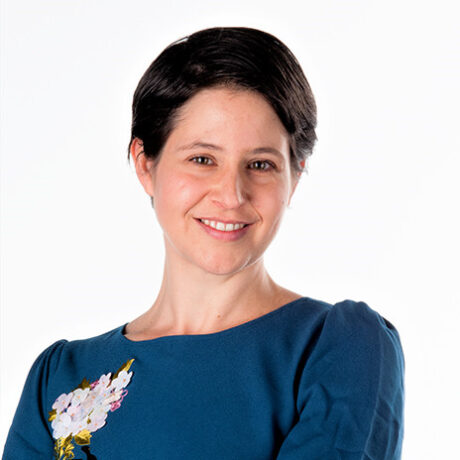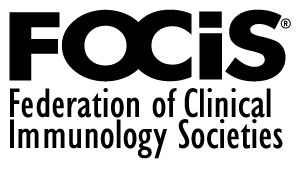UTRECHT INFECTION & IMMUNOLOGY in Utrecht, the Netherlands
About Femke van Wijk, PhD

Career path
1. How did you first get involved in immunology?
I was starting biology and I was thinking to do a Master’s in Environmental Biology, but then I followed a course in immunology and I was really hooked because I thought it was the most complex and fascinating system. So I decided to pursue a Master’s in Immunology and also to continue with a PhD in Immunology.
2. Tell us about the research you’re most proud of.
About four years ago, together with Professor Marjolein de Bruin, we formed a new research team studying biological and clinical effects of new biologics for atopic dermatitis and chronic skin inflammation. And the team consists of basic and clinical scientists, as well as bioinformaticians and diagnostic experts. And in a short period of time, we have been able to collect relevant data from biomarkers to insights into immunological mechanisms regarding the efficacy and side effects. And we are rapidly expanding. This is really a true multidisciplinary team effort in a field where we feel we can make a lot of impact. And that gives us a lot of energy.
3. What is the most important trait a researcher should possess and why?
That’s a difficult question, but I think the most important thing is to be curious and to be open. So the drive of wanting to understand and also to learn.
4. What is the biggest lesson you’ve learned?
The biggest lesson is that, as a scientist, it’s important to be open and collaborate. And I know that competition is a part of science, but I believe more in collaboration. And I really think that advancing science and having an impact is faster, better, and also much more rewarding if you do it together. That’s for me very important. And it’s also something that I think we can still improve within the science community.
5. What advice would you give to young researchers just starting out in the field?
I think that you don’t have to follow a classical science track. Research is becoming more and more multidisciplinary and asking for many different skills and backgrounds. You don’t have to have this classical track of doing a postdoc, becoming a PI in a specific field, but science is becoming more team based. You can also look for other options and pursue what really interests you and not what others expect from you. If you really feel a passion for something, pursue that and not just follow the track that everyone expects you to follow.
6. Describe your average workday.
That’s a bit difficult, but I start with answering emails and then I try to work for a couple of hours on grants or papers or other projects. And then the rest of the day is mostly filled with meetings. But members of my group also come by my office for questions or just for chit chats. And I found those chit chats very valuable because they often spark the most interesting conversations on science, but also on non-science issues. It’s really nice to have a little bit of a diversity there. And I also try to plan a few more walking meetings per week, to go outside to have a meeting while walking because it also has a different pace and adds to the conversations.
Work with FOCIS and FCE's
8. Switching gears, how did you first get involved with FOCIS?
A few months after I started my postdoctoral in translational immunology in 2006, I attended my first FOCIS meeting in San Francisco and I really liked it, and it also convinced me to continue in translational immunology because I just started on the project that was about human immunology. That was my first time with FOCIS, already quite some time ago.
9. How do you think FOCIS has changed your world?
It’s one of the few meetings that’s out there that really combines excellent basic translational and clinical science and also brings together this community. So for me, it really showed that this approach can work and that it’s also important to have all these types of scientists with different backgrounds together. It’s something that I have pursued within my own Institute, for example, but also in my research. FOCIS has been really important. It was the first time that I thought, okay, we can do it in this way and it’s possible to do it like this.
10. If your colleague asked you why they should join FOCIS, what would you tell them?
I think it’s the best translational, slash, clinical immunology Congress out there. And despite covering a broad area in immunology, it’s not too big, which is also nice, I think, and they have excellent courses, an active community, and it’s an important network.
11. We’re going to talk a little bit now about your FCE. Can you tell us about the research that you’re doing?
My research program aims to elucidate immune responses in health and inflammation, and then with a focus on tissues and to translate these into insights, into tools for preclinical disease monitoring and therapeutic targeting in chronic inflammatory diseases. And I take a disease and age overarching approach, meaning that we are looking into many different chronic inflammatory diseases, in both pediatrics and adults, and we try to decide common, but also specific pathogenic processes, that are underlying these different conditions. And one of our specific interests is also to look at early imprinting of disease, so from a very, very young age. Diseases my group is working on, of course together with clinical scientists, include atopic dermatitis, inflammatory bowel disease, arthritis and juvenile and pediatric arthritis and also dermatomyositis, both in children and adults.
12. What is the vision/your dream goal of your FCE? What are the specific goals as the FCE Director?
What is really nice in Utrecht, where I’m based, is that we have the Center for Translational Immunology and they’re all immunology labs and researchers from basic immunology and all clinical disciplines. So dermatology, gastroenterology, rheumatology, oncology, and also diagnostics, they are united. It’s really a centralized interdisciplinary immunology lab. And it has been the first in the Netherlands, the way it’s organized, and it aims to improve the quality of life of those suffering with immune-based diseases. And this interdisciplinary approach is very important. It also includes training of young professionals with a broad range of skills. My specific goal, together with FCE vice-director Clinical Immunologist Dr. Helen Leavis, is to even have a better connection between the lab and the clinic, but also between these different disciplines, because I think that’s really when the impact comes together. From the fundamental sciences to the clinical applications, also in the diagnostics, the whole setting is there, but I also want to improve the way we do the research together. So that is something that is really a goal of our FCE and also of me, personally.
13. What are your biggest challenges?
Currently one of the big challenges, especially in the Netherlands, is that we really have a check of culture. You see that in many sectors, but it has also entered science and academia. It’s good to have quality checks, but administration is taking a lot of time and we really have to give a detailed justification of work hours for some grants, every Euro that you spend for a project. Sometimes we have to give three monthly progress reports. It has become a little bit like running a business, also with contract key performance indicators, and because funding agencies avoid risky fundamental and or exploratory projects because they want to have quick results and outcomes. I think this kills creativity and also fuels short-term thinking. It may be a symptom of mistrust and also avoiding risks at any cost. I think, as scientists, we should convince regulators that we are worth the trust and the freedom because we really need this to make long term investments and really think about the bigger goals and not just focus on small projects all the time and all the checks for the projects.
14. Why did you apply to be an FCE?
The mission of the Center for Translational Immunology that we have is to improve the quality of life of those suffering from immune-based diseases. That really perfectly fits with the mission of FOCIS. That’s one reason. And the other one is that it’s important to be part of a larger international community, for collaboration training of young scientists, like with the excellent courses that are out there. So really to connect with other centers like this in the world.
Those are all the questions for today, thank you for your time.
